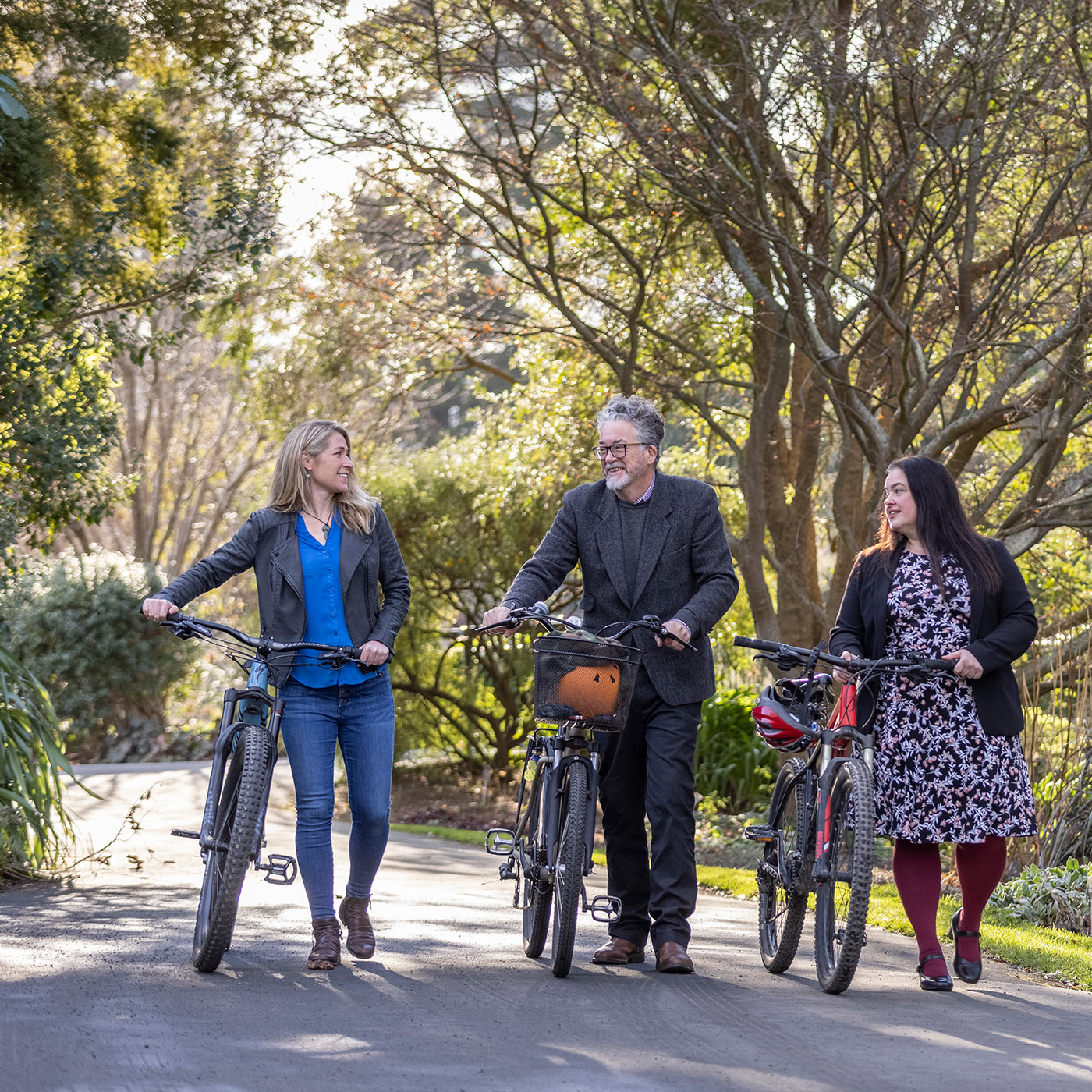Tourism's new destination
“Regenerative”, “holistic” and “sustainable” are words being used to describe the future for New Zealand tourism, with greater emphasis on the well-being of host communities. University of Otago researchers are at the forefront of this thinking.
Talking to the head of Otago's Tourism Department about the importance of sustainability is like talking to a sailor about the importance of having a boat.
“The broad focus of the department has always been on sustainability – it's been our go-to mantra since we started back in 1989,” says Professor Brent Lovelock. “Most members of the department are at least ankle deep in sustainability research and many of us are up to our eyeballs in it.”
One topic that dominates the desktops of many in the department is sustainable destination planning. Regional Tourism Organisations (RTOs) are currently in a period of great flux as they pivot to cope with the economic ravages of COVID-19 and remedy the unchecked growth that was starting to compromise some of New Zealand's key tourism hotspots.
The Minister of Tourism, Hon Stuart Nash, signalled this in his speech to the Tourism Policy School in March when he said: “I believe that in a number of places, the industry was beginning to erode its social licence to operate, and therefore losing the community's support for continued growth of the sort we were seeing.”
This “social licence” (community goodwill towards tourism activity) sits at the heart of Associate Professor Susan Houge Mackenzie's research. With Lovelock, she's examining the well-being of tourism's host communities and the crucial attention these stakeholders should receive from destination planners.
“Hopefully getting some research out about how regenerative tourism works in practice, will help situate Aotearoa New Zealand as a leader in this space.”
“The word sustainability has, unfortunately, lost much of its initial meaning and appears to now encompass a wide range of projects or approaches. It's a highly contested term in both academia and practice…”
“In the past, a lot of RTOs have been focused on marketing only – on saying, 'Come, come, come to this destination' rather than thinking about how to manage tourism in their regions,” Houge Mackenzie says. “I'm particularly interested in destinations and approaches that are moving towards a regenerative tourism framework.”
One of the RTOs the pair will be looking at is already ahead of the game in this regard: Tourism Bay of Plenty (TBOP). “They've developed this quite innovative tourism plan,” Lovelock says. “They're doing some really cool stuff”.
Under Kristin Dunne's progressive leadership, TBOP has enshrined regenerative tourism values in an inspired strategic plan which is anything but lily-livered. It states: “TBOP sees the opportunity to change the game by showing that tourism can be a regenerative force that enables all life to thrive.”
Sceptical about whether the word “sustainability” is still fit for purpose, they use terms like “regenerative”, “integrated” and “holistic” to describe their approach to destination management, saying: “Regeneration is more than just reducing one's footprint and doing less harm; it is about leaving our place better than we have found it.”
This sort of strong, community-centric destination planning is tourism gold to Houge Mackenzie. “Hopefully getting some research out about how regenerative tourism works in practice will help situate Aotearoa New Zealand as a leader in this space.”
Further down the departmental corridor, Dr Julia Albrecht has been assessing the health of that baggy word “sustainability”. One of her recent projects was titled “What's in a name? The meaning of sustainability to destination managers”.
After interviewing respondents both here and overseas, she discovered just how much wiggle room that word contains. “The types of destination management interventions that are described as sustainable and the extent to which the economic component of sustainability is prioritised varied strongly across destinations. One respondent overseas cited the building of a new ski lift in their destination as an instance of increasing the destination's sustainability!”
An unexpected finding of the study was destination managers' awareness and concern about their own organisation's sustainability, particularly in terms of recycling, and staff well-being and satisfaction.
“The word sustainability has, unfortunately, lost much of its initial meaning and appears to now encompass a wide range of projects or approaches,” Albrecht says. “It's a highly contested term in both academia and practice, and it's not at all clear what destination managers mean when they claim to act in the interests of sustainable tourism. It's now tangled with the colloquial use of the term which differs too strongly among individuals. Some will only ever use the term cynically now; to quote from an interview with one destination manager: 'Oh God, I hate that word'!”
If the tourism industry and its stakeholders are to sing from the same song sheet on the crucial business of sustainability, our collective understanding and implementation of that now-ubiquitous term needs some attention. Albrecht thinks that using the United Nations' Sustainable Development Goals might help reframe the debate and “force” people to be more specific. Anything to help that well-meaning word out of its current identity crisis.
Once destination managers have arrived at a shared understanding of sustainable development and given due consideration to the well-being of host communities, all they need to do is crack on with the business of decarbonising the tourism industry. Andrus Nomm can help with that. His PhD research (under the supervision of Albrecht and Lovelock) centres around the tricky question of how tourism can move towards a climate-neutral carbon footprint.
Nomm is busy developing various destination management scenarios for climate-considerate and climate-safe tourism futures. He'll then discuss these with destination management practitioners to propose appropriate destination management practices, processes and interventions for a carbon-neutral future. Says Lovelock: “It's a really fantastic project and could be a real game-changer for the tourism industry.”
Funding
University of Otago
Associate Professor Susan Houge Mackenzie, Professor Brent Lovelock and Dr Julia Albrecht.
